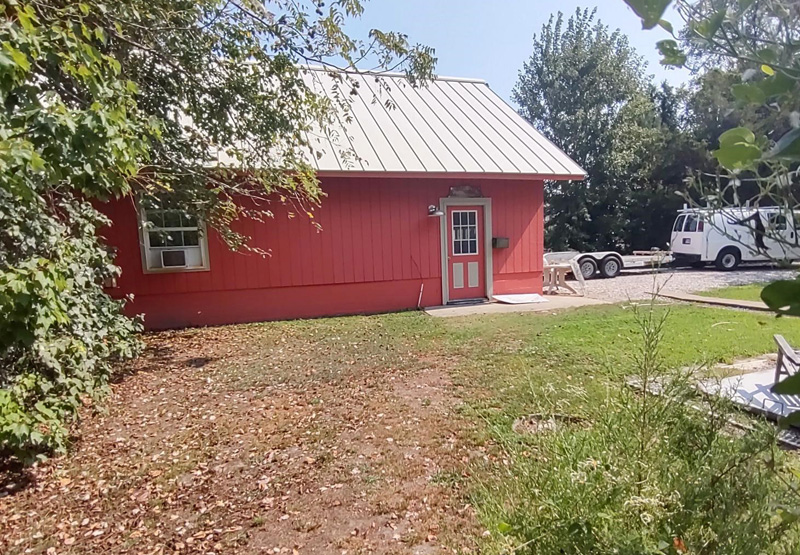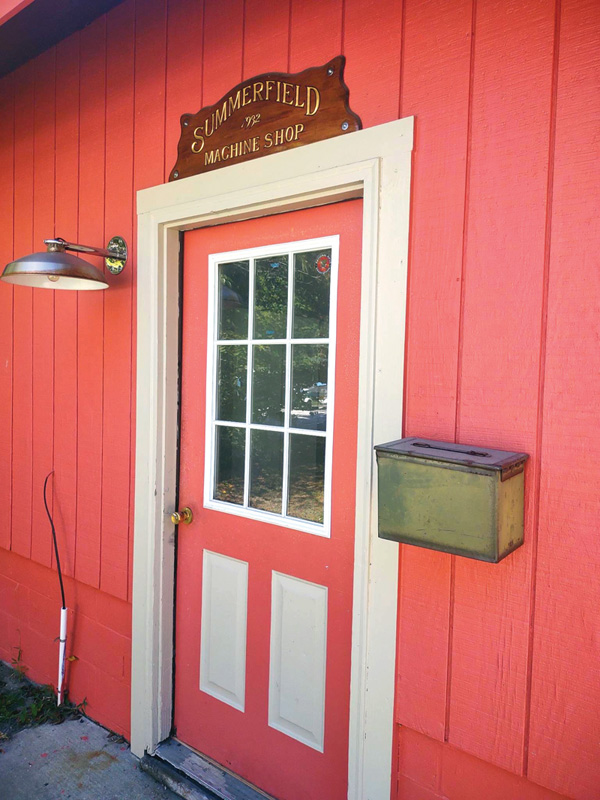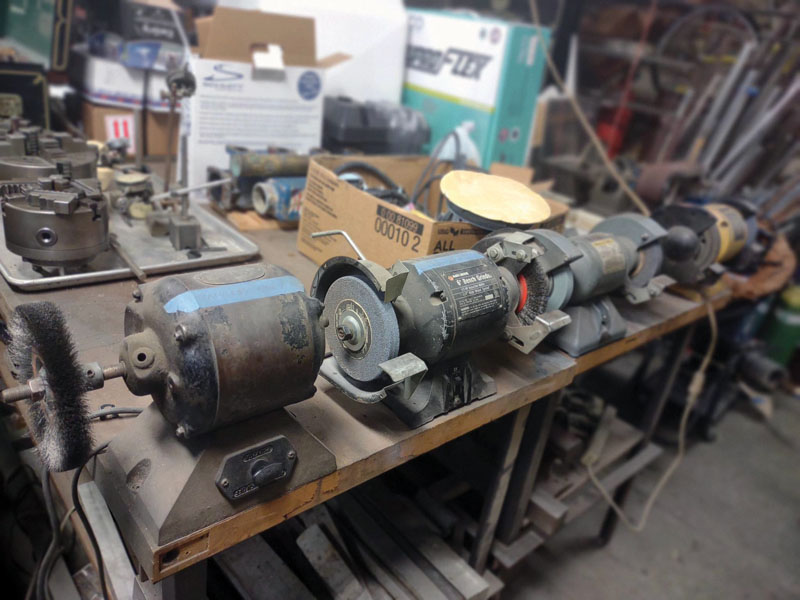A cruising sailor seems always to find a locally beloved shop
Helpful souls in quirky machine shops seem to exist in all boating towns, and as a cruising sailor I often have the pleasure of finding them.

Several of my stanchions were bent in Hurricane Dorian, some worse than others. I straightened them out, but a year later Hurricane Isaias re-bent them and added in a few extras for good measure. Maybe just staying out of the path of hurricanes would be a smart solution, but what is done is done, and now, hauled out in Deltaville, VA, it was time to finally deal with a few things. The boat’s weathered toe rail needed to be sanded and varnished, the flaking and rust-stained paint on her decks was due to be stripped and refinished, and those bent stanchions had to be removed and repaired, if they safely could be. Lacking the skills and tools to properly assess this, I asked the folks around the boatyard whom to call.
Every boat town I’ve ever spent time in has a machine shop. The shop may or may not have a proper name and rarely has listed hours or a telephone number. It is locally beloved and has an often-quirky owner who responds to questions like “How much?” with a stroke of the chin and an answer along the lines of, “Ahh, we’ll figure something out.”
My friends and I found one of these in St. Augustine a few years back when we were rebuilding a rather stubborn windlass and couldn’t free a particular bearing. We asked around and were soon directed to an old, dark warehouse space just outside of town. Inside, a soft stream of classic rock seeped out of a portable radio. A cat roamed the top of the shop’s work tables. It was the speakeasy of machine shops. You felt privileged to be allowed inside. After a bit of effort on the pneumatic press the bearing was successfully freed, and my friend Chip asked what the charges were. “Well,” said our machinist, thinking. “How’s 20 bucks sound?” This is how these places work.

You'll know when you get there
Back in present-day Deltaville, my bent stanchions and I were directed to a local man named Wes. I knew he was the right guy when I was given directions to his shop. “Drive towards the back end of Lovers Lane,” began Daphne, my boatyard neighbor, who had employed Wes for some stainless work on her wind vane. “You’ll know you’re there when you get there. I think there’s a boat in the driveway. Just wander on into the shop. He won’t mind.”
I drove down Lovers Lane, trying and failing to locate Wes from the directions I had been given. Eventually I flagged down the postwoman and asked if she knew where his place was. “It’s gotta be that guy,” she said, pointing just down the road. “He does all kinds of weird stuff in that yard.” Odd description—but she was right.
Wes’s shop looked much more New England than Deltaville. The barn-like building was crisply painted coral pink. A shiny varnished sign over the door said “Summerfield Machine Shop, 1932.” I knocked and poked my head in. A friendly face smiled back at me. It was, of course, Wes. I showed him the stanchions. He assured me they could be safely re-bent to the correct angle. I asked what it might cost. He paused. “I can’t imagine it could be more than 60 dollars," he replied. We both nodded. It seemed fair.
It was only a few hours later when he texted me to let me know that the work was done and that the stanchions were ready to be picked up. Back in the shop, gazing at the perfectly straightened pieces of hardware, I asked for advice on polishing them. “What you really need to do,” he said, “is just come do them on my polisher. I bet you could knock the lot of them out in less than an hour or two.”
“And what would an hour or two of time on that machine be worth to you?” I asked.
Wes didn’t skip a beat. “Oh, I’d say a 12-pack of PBR sounds about right.” And with that, the deal was done.
The next morning, after a stop at the local grocery for the beer, I pulled into Wes’s driveway. Inside, Wes sat sipping a cup of coffee at his desk. He smiled as I set the payment down. “Thank you,” he said. “I’ll get this right to the fridge.”

No one's there, but go ahead and pop in
We got right to the polishing. He showed me how the machine worked, how to apply the black polishing compound, and how to buff it off to a great shine. He warned me that the pieces would get hot in my hands and that the black flies would bite at my legs. He was right on both counts. Wes disappeared into the depths of his shop to work on something else, leaving me to my task.
The first stanchion took a while. The second one went faster and looked much better than the first. The third hit the polishing brush the wrong way and shot down to the ground at breakneck speed, leaving a bright purple ding in my toenail but luckily no blemishes at all on the stanchion. The morning ticked slowly by. I got better at the process, and the work went faster. A bit later Wes popped through the door. “I have to go bid a job,” he said. “I’ll be back.” With that, he was gone.
There I was, working alone in the man’s shop while he wasn’t even there, half hoping someone would drop by for a quote, thinking I could eye the person’s job skeptically, saying that it looked like a lot of work and offering something like, “I don’t know. How’s 200 bucks strike you?” But it was not to be.
Wes did eventually return. He never did ask if anyone had come by. He just slid back into work as if we punched the same clock every day of our lives. Soon, my work wrapped up. The stanchions looked great. I tossed them in my car, gave Wes a fist bump, and drove back to the boatyard, all smiles.
The next day, having decided that machine shops in little boat towns deserved an article, I texted Wes to ask if I could come take a photo or two. His response was exactly what you might expect.
“Well,” he said, “I’m not in the shop today, but it’s open if you want to pop in.”
By John Herlig
About the Author: John Herlig lives aboard his Rawson cutter Ave del Mar, teaches at Cruisers University, and is the host of the podcast Remarkable Stories. Find him on Instagram @sailing.ave.




